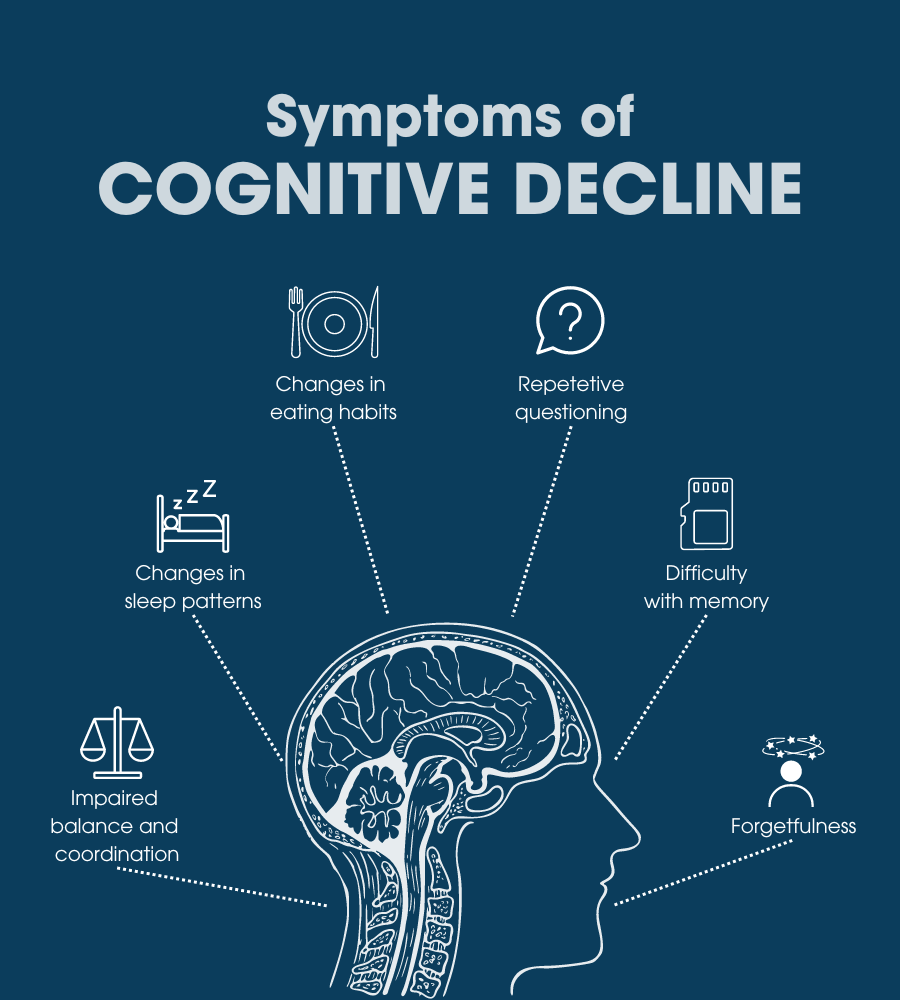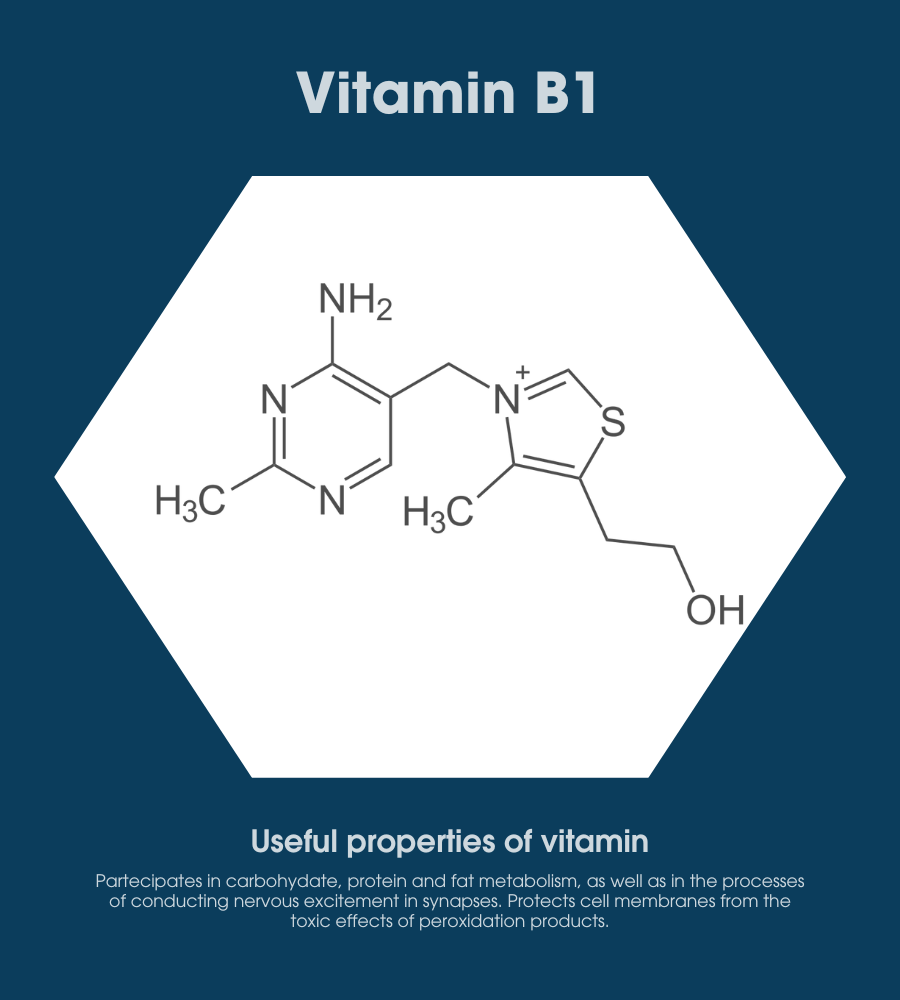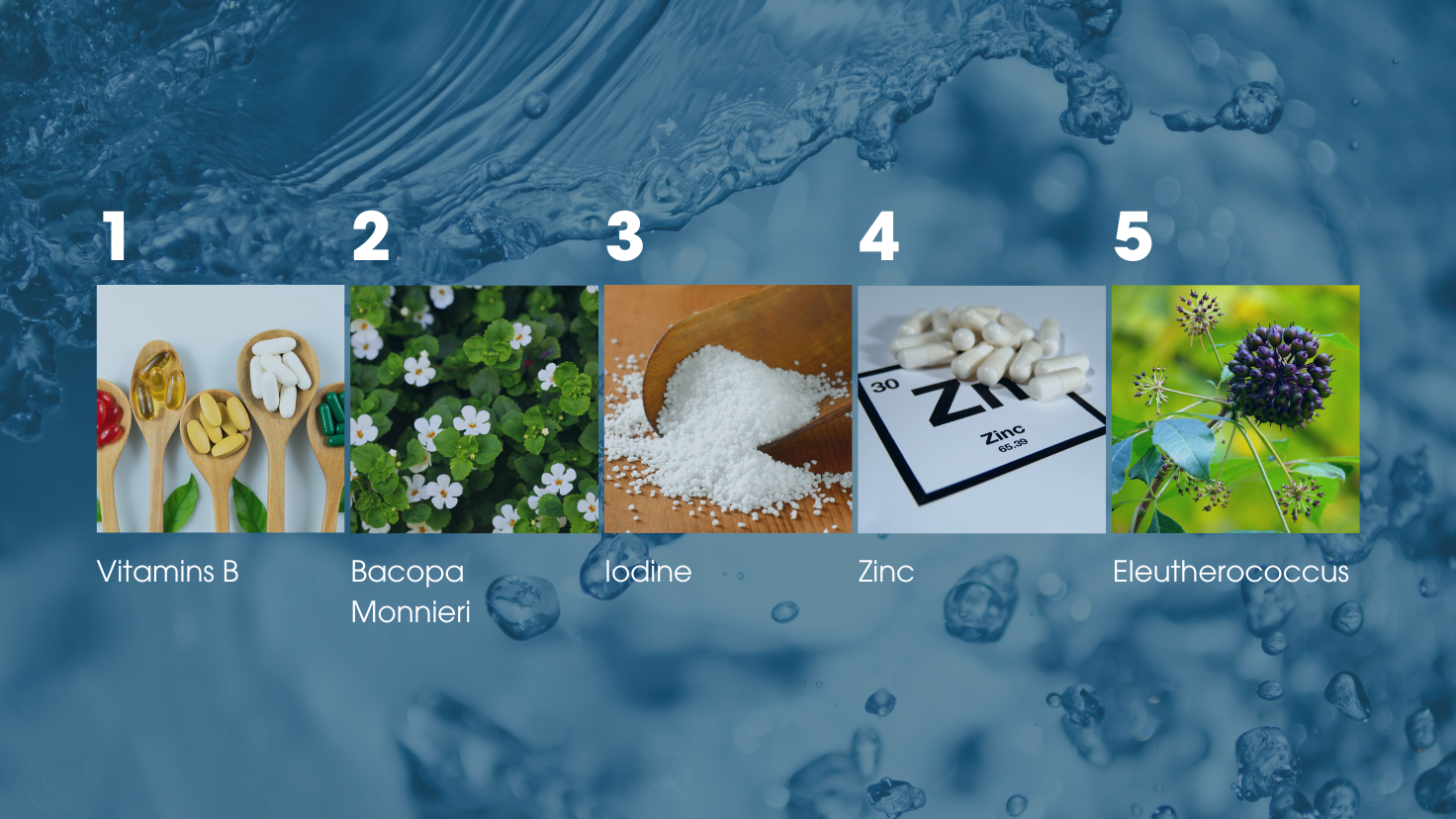

Cognitive functions can be defined as mental abilities that include attention, memory, perception, and learning. These faculties are often tested by factors such as stress, fatigue, and aging. Naturally, this leads people to look for solutions supporting cognitive abilities. Usually, the answer comes from the world of nutraceuticals, which has observed the effects and properties of different substances and components over the years through numerous studies.
The same has been done by Biofarma Group, which, thanks to the vital experience of its research and development laboratories, has created products capable of supporting these functions in two particularly delicate phases concerning memory and attention: school age and old age.
Cognitive disorders are commonly associated with older age, so much so that we speak of an objective cognitive impairment. This association is amply supported by statistical data on the subject. Studies on memory have shown that about a third of healthy older people have difficulty with declarative memory, and only about a fifth of seventy-year-olds obtain results like those of twenty-year-olds on cognitive tests.

The symptoms of cognitive decline that affects the elderly can be different: difficulty in fixing new memories and therefore learning new things can be observed; it can be complicated to carry out several actions at the same time, and finally, it can become a problem to remember simple information such as names, numbers, where and when they were learned and scheduled appointments.
A gradually changing environment generates such difficulties within the brain, which scientists are trying to observe and study with the help of imaging technology and advanced research techniques. Understanding the neural basis of cognitive decline may lead to drug therapies and other strategies to slow or prevent it.
However, older adults are not the only ones who need support regarding cognitive functions. Students often encounter difficulties concerning concentration and memory. The causes of this problem can be attributed to various factors ranging from stress to anxiety, fatigue, and even excessive use of electronic devices.
Both in the case of students and older people, the remedies to support cognitive skills can be different: exercises to train memory and concentration, use of strategies to remember things, an improvement in mental health and especially lifestyle in terms of physical activity, healthy eating, and sleep quality.
A vital ally can also be represented by food supplements which, as already highlighted, have been the subject of studies for years as they represent adequate support in the case of cognitive problems.

Over the years, numerous studies have been conducted to test the effects of different active ingredients on cognitive functions. The tests identified potential components of nutraceutical products that could meet various age groups and needs.
Among the components that have shown significant effectiveness in supporting memory in elderly subjects, with even a situation of dementia, vitamin B1 or Thiamine emerges. An analysis by the New York Academy of Sciences has highlighted how studies conducted over the years have shown that a thiamine deficiency is associated with neurological problems, including cognitive deficits and encephalopathy. In particular, many studies link thiamine deficiency to memory impairment. Thousands of studies have been published, with considerable differences in treatment and duration, which have come to the common conclusion that thiamine deficiency is associated with a decrease in memory and that, therefore, its integration can help elderly subjects implement their cognitive performance.
But in addition to vitamin B1, numerous studies have focused on Bacopa Monnieri or Brahmi. An herbal medicine native to the wetlands of southern India and Australia, which has been used for centuries in Ayurvedic medicine as a tonic and a remedy for the treatment of various neurological and neuropsychiatric diseases. It has been shown that consuming B. Monnieri can improve logical memory, learning, and mental control in individuals with age-associated memory deficits without serious adverse effects. Furthermore, a five clinical trial conducted on 60 healthy elderly subjects, who were asked to take a standardized amount of B. Monnieri once daily for 12 weeks, showed results suggesting that the use of extracts of this plant can improve attention, cognitive processing, and working memory.
As for the target students, however, in the literature, numerous trials are aimed at observing memory and concentration in children and young people. Specifically, numerous studies have observed how these react to Phosphatidylserine (PS), considered a fundamental nutrient for the brain. This phospholipid is, in fact, an essential component of the brain structure and spinal cord and is active at the level of cell membranes (including synaptic membranes). In addition, published clinical research has shown that PS supplementation supports various cognitive parameters in children, including those with Attention Deficit Hyperactivity Disorder.
For example, a study 1 of thirty-six children aged 4 to 14 years observed the effects of administering 200 mg of PS daily for two months and recorded significant benefits on short-term auditory memory without adverse effects. In addition, in an additional clinical trial, two selected 1,20students aged 17 to 18 years took 100 mg of PS in a glass of milk or placebo (milk without PS) for 40 days. Again, the results showed that the PS group experienced a significant improvement in memory performance compared to the start of the study and the placebo group.

Biofarma Group, which has always been active in formulating and developing nutraceutical products capable of interpreting the market’s needs and assessing consumers’ needs, has prepared two products to support memory and attention both in school-age groups and in the delicate phase of advanced age.
The strength of these nutraceutical products lies in the effectiveness of a synergistic mix of winning active ingredients.
Concerning the senior target, for example, the formulation identified by the research and development laboratories includes, precisely, vitamin B1 and Bacopa Monnieri as well as other components such as vitamins B2, B6, and B5, niacin, iodine, zinc and eleutherococcus able to contribute to normal nervous system functioning and cognitive functions and to protect cells from oxidative stress.
The joint action of these active ingredients allows the formulation to support older people by increasing their cognitive performance.
The product-oriented to the target students instead takes its strength from the action of phosphoserine – of which phosphatidylserine is a metabolite and whose effects on memory have already been highlighted previously – and from a series of other components able to contribute to the functioning of the nervous system and cognitive abilities: niacin, vitamins B6 and H, iodine and zinc.

Finally, a special mention is the innovative packaging technology used to distribute the two products: M-Cap. It is a unique two-phase technology that allows enclosing and simultaneously separating in the same main pack, the solid part of the product (powder), and the liquid component.
This type of packaging is particularly suitable for probiotic products but also applies to vitamins, minerals, and other micronutrients. The advantages are significant and different: M-cap allows you to maintain the integrity of the benefits of the powder, as it is contained in an environment protected from humidity and light, enabling excellent product stability and a shelf-life of 24 months; it also makes the product easy to take at any time and therefore perfect for the needs of the practicality of use of the elderly and the active life of students.
Edited by:
Antonella Venuti: R&D Manager
Valentina Milite: R&D Food Supplement
Bruno G., “Phosphatidylserine: Benefits for Children,” Huntington College of Health Sciences, 2014
Gary E. Gibson, Joseph A. Hirsch, Pasquale Fonzetti, Barry D. Jordan, Rosanna T. Cirio, Jessica Elder, “Vitamin B1 (thiamine) and dementia”, Annals of The New York Academy of Sciences, 2016
Hirayama S., Terasawa K., Rabeler R., Hirayama T., Inoue T., Tatsumi Y., Purpura M., Jager R., “The effect of phosphatidylserine administration on memory and symptoms of attention-deficit hyperactivity disorder: a randomized, double-blind, placebo-controlled clinical trial,” Journal of Human Nutrition and Dietetics, 2013
Sherman C., “Active aging and the brain. Questions about how memory works? How to lead a healthy lifestyle that protects the brain”, The Dana Foundation, 2017
Tatimah Peth-Nui, Jintanaporn Wattanathorn, Supaporn Muchimapura, Terdthai Tong-Un, Nawanant Piyavhatkul, Poonsri Rangseekajee, Kornkanok Ingkaninan, Sakchai Vittaya-areekul, “Effects of 12-Week Bacopa monnieri Consumption on Attention, Cognitive Processing, Working Memory, and Functions of Both Cholinergic and Monoaminergic Systems in Healthy Elderly Volunteers”, Hindawi Publishing Corporation, 2012
